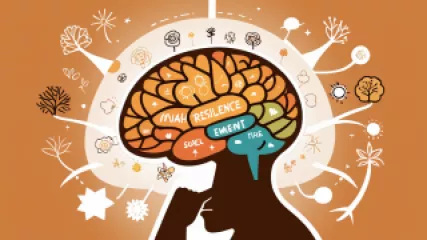Ever since I can remember, the human mind has been my Everest—vast, mysterious, and endlessly fascinating. My name is Quinn Davidson, and over the past decade, I've dedicated myself to unraveling the complexities of our inner workings, with a particular focus on fostering self-discipline and demystifying the essentials of therapy. This journey hasn't just been about climbing; it's been about trailblazing new paths.
My approach isn't traditional, per se. I see therapy not as a one-size-fits-all solution but as an art form that's as unique as the individuals who seek it. Every session is a canvas, and the techniques we use are our colors, each one selected to bring out the hues of your personal growth and self-discovery. Together, we explore the spectrum of your emotions and thoughts, blending new shades of understanding and perspective.
What sets me apart? It's simple: I'm not afraid to think outside the box. In fact, I thrive on it. The realm of self-discipline, for instance, is often viewed through a rigid lens. But I see it as an opportunity to innovate, combining traditional methods with cutting-edge research and experimental strategies. It's not just about willpower; it's about weaving habits and mindsets into the very fabric of your being, transforming the way you interact with yourself and the world around you.
The basics of therapy, too, are ripe for reinvention in my hands. Far from being mere stepping stones, I view these fundamentals as keys to unlocking deeper, more meaningful engagements with our mental health. By breaking down these concepts into their core components and then reconstructing them in a way that resonates with you personally, we create a tailored therapeutic experience that speaks directly to your soul.
My conviction is that we're all explorers in the vast landscape of our minds. As your guide, I don't just follow the well-trodden paths; I encourage us to venture into uncharted territories. It's in these spaces, beyond the familiar, where true transformation can occur. This pioneering spirit is what fuels my passion for therapy and drives my continuous search for innovative approaches and techniques.
In our sessions, expect the unexpected. Anticipate moments of profound insight interspersed with challenges that push you to grow. But above all, look forward to experiencing therapy in a way you never thought possible. With me, therapy isn't just about talking; it's about doing, feeling, and, most importantly, evolving.
If you're ready to embark on this journey, to scale your Everest with grit, creativity, and a touch of the unconventional, then I'm the therapist for you. Together, let's discover not just who you are, but who you can become. Your path to self-discipline and a deeper understanding of therapy basics starts now. Let's blaze this trail together.















